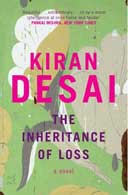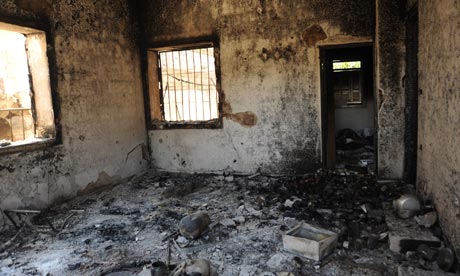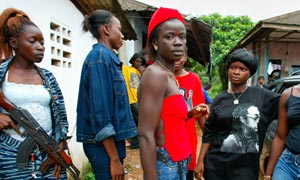The Inheritance of Loss
by Kiran Desai
Hamish Hamilton £16.99, pp336
Sai lives with her grandfather, a former judge, in a decaying house at the foot of Mount Kanchenjunga in the north-eastern Himalayas. Orphaned at a young age, she has grown up in isolation but is taking her first tentative steps towards love thanks to the young Nepalese tutor her aloof grandfather has engaged. Her only other companion is her grandfather's talkative cook, a man whose hopes and dreams are focused on his son, Biju, 'the luckiest boy in the world', who was granted an American visa and is making a new life in New York. So far, so straight forward, but the year is 1986 and revolt is in the Nepalese air.
The Inheritance of Loss starts with deceptive simplicity before expanding to provide a critique of empire, the immigrant experience and, crucially, the experience of those the immigrant leaves behind. We have been here before countless times, notably with that fussy grandfather of colonial literature, VS Naipaul, but Desai is clever enough to head off such comparisons at the pass. Naipaul's masterly A Bend in the River is discussed early on by Sai's elderly neighbours, Lola and Noni. 'He's not progressed,' Lola remarks of Naipaul, before adding: 'Colonial neurosis, he's never freed himself from it. Quite a different thing now.'
Yet Desai's point is that it is Lola who has failed to progress, still dreaming of an England of Christie and Wodehouse. That said, Desai takes a more sceptical view of multiculturalism than her near contemporaries Zadie Smith and Hari Kunzru. Not for her their largely optimistic views of a changing, expanding world bringing everyone closer together. Instead, as Biju, trawling through a series of illegal catering jobs in New York, discovers, the old caste systems are still in place: 'Above the restaurant was French, but below in the kitchen, it was Mexican and Indian.'
That is not to say that Desai's novel is an unremittingly depressing affair. She is a wonderful writer of comic set-pieces, most of them centring on Biju's experiences in New York. Yet, while these chapters are carried off with aplomb, it is the melancholy at the heart of The Inheritance of Loss that fuels the narrative. We see the crumbling dreams of Sai's neighbours, Swiss Father Booty and his alcoholic friend, Uncle Potty, still trapped in an older era when colonialism was for the best.
And we are shown how easy it is for Gyan, Sai's tutor and love, to take those first tentative steps towards revolution in the name of Nepalese freedom: 'Old hatreds are endlessly retrievable,' Desai explains. 'Purer ... because the grief of the past was gone. Just the fury remained, distilled, liberating.' The Inheritance of Loss dissects the dream of empire, old and new, and lays bare the idea of colonial modernity. It shows, without judgment, what happens to those who leave for a new life and yet find themselves outcasts both at home and abroad. It is a novel that manages to be both warm-hearted about human nature and clear-sighted about humanity's flaws. The comparisons with Naipaul may be inevitable, but this proves Desai has a mature, compassionate voice of her own.

















